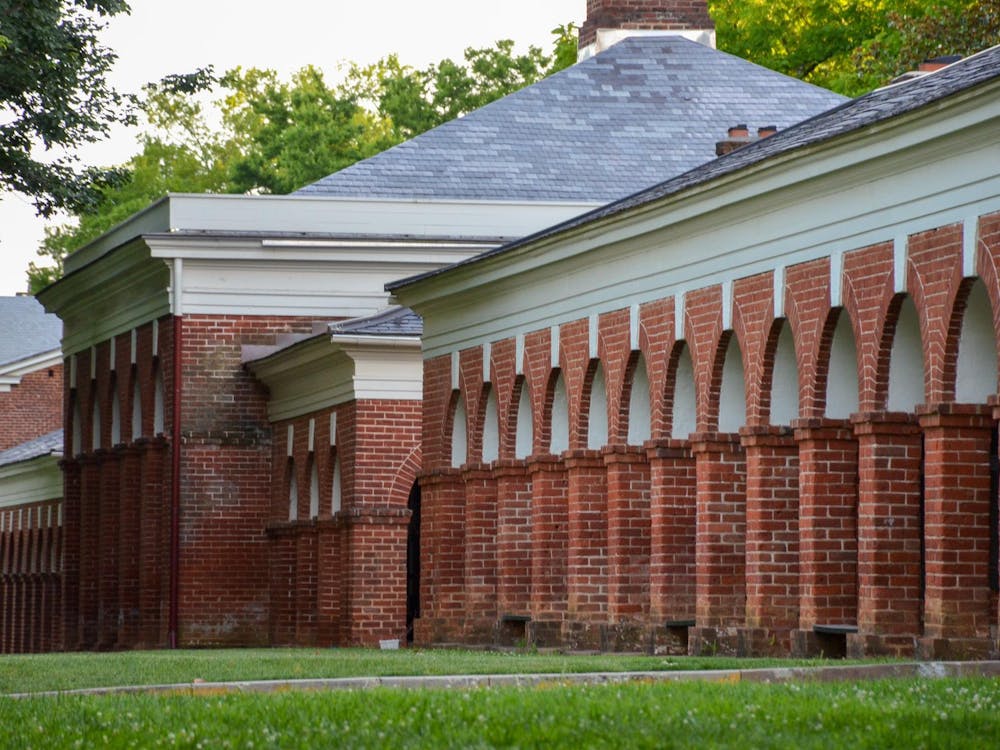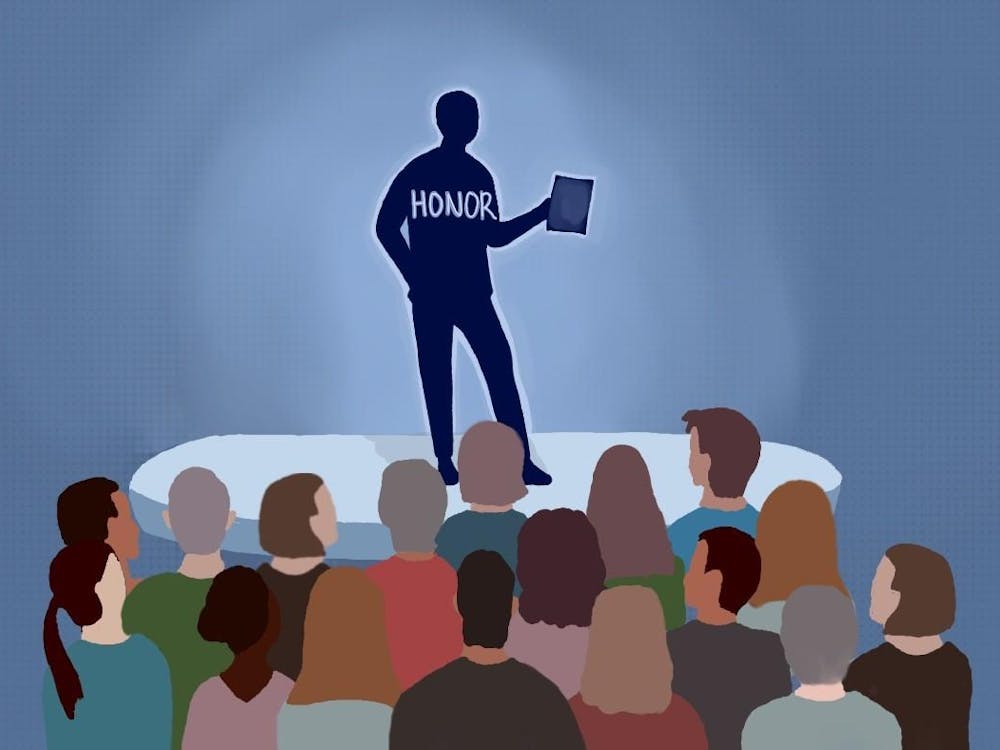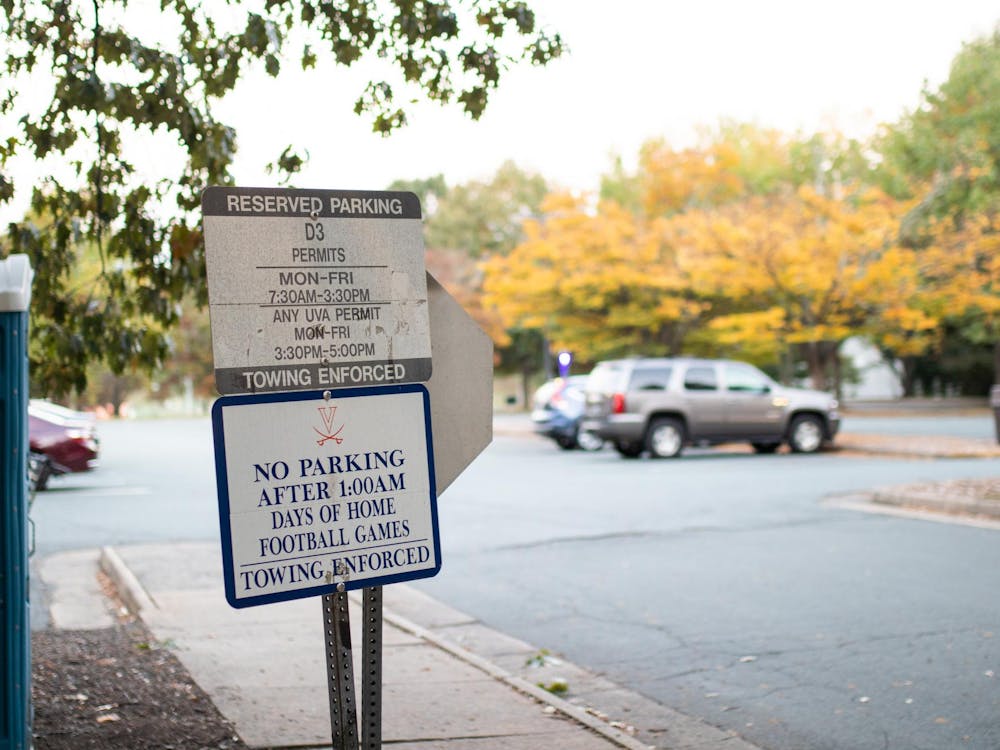TUESDAY, Virginia's future made history. Kids from Charlottesville, Albemarle County and surrounding areas voted in the largest secure Internet election ever. In the space of 12 hours, almost 5,000 people's votes were recorded, compiled and reported to the evening news. In those 12 hours, at least part of Virginia got a glimpse of voting in the 21st century and of technology's impact on our basic human rights.
The Youth Leadership Initiative, sponsored by the University's Center for Governmental Studies, connected middle and high school students to the latest Internet voting technology. Students voted the same ballot that their parents will see Nov. 2, in a small-scale version of Election Day.
Soon, many of those who voted in Tuesday's Youth Leadership mock election will turn 18 and will be able to vote in November. If voter turnout trends continue the way they have over the past 30 years or so, and if the government doesn't find some way to draw in new voters, however, most of them probably won't even go near a booth on election day. Internet voting could reverse that trend.
According to the U.S. Census Bureau, in every election between 1964 and 1996, the 18-24 age group had the lowest voter registration and voter turnout percentage. Americans over age 65 had the greatest turnout and registration in the large majority of the elections, followed closely and sometimes surpassed by those aged 45-64.
These discrepancies easily are explained with all the classic reasons: those in their early twenties often are on the move - they're away at college, job hunting, or settling in a new place. They're not old enough to be really upset about FICA taking all their money, and they're certainly not old enough to be genuinely concerned with the state of government aid programs like social security.
Senior citizens, on the other hand, have all those reasons working in their favor as voters. They generally are firmly established in their communities; they know the politics of the area and have had the opportunity to register. Retired persons especially have more time for researching issues and voting, and many of them depend on social security for survival. They have three important elements - the time, the incentive and the place to vote. Two of these three could change with Internet voting.
Peter Adlerberg, Director of Business Development at VoteHere.net, the company that ran Tuesday's mock election, said some states could approve Internet voting as early as next year. Computer voting would be restricted to official polling stations, making elections much easier for the government to administer. For the electorate, however, not much would change. Big effects would come later, when the technology and logistical arrangements are such that people could vote from their home or office.
Twentysomethings on the move could vote from anywhere with their own PIN number. Young go-getters no longer could use lack of time as an excuse to not vote. For anyone with easy access to a computer, there no longer would be a good excuse for not voting.
But that's only for those with easy access to a computer, and access varies dramatically according to age. Use of computers at home, school and work declines dramatically with age, according to the U.S. Census Bureau. Fifty-eight percent of people age 18-24 use computers somewhere. That figure stays pretty constant through age 54, but only 20 percent of those over 55 use computers. Eighty-nine percent of college students use computers.
Comparisons of voter turnout and computer use tell us much about our nation's electoral future. The voting population's age could shift dramatically downward. While very few 18- to 24-year-olds vote, 60 percent of them use computers. Voting would be practically painless - voters simply could email their ballots to the polling station whether they were in the next town or on the next continent. Plus, Internet voting might be just the thing to rekindle political interest in today's disenchanted youth.
Widespread Internet voting is coming, but things may change by the time it does. The computer generation will have aged, and computer literacy will be more widespread. Computers also could follow the same economic path as televisions, becoming more and more affordable, and more of an expectation than a luxury.
Young Americans traditionally have been underrepresented in the voting public, an ironic situation considering that we will be the ones feeling the effects of the laws implemented now far into the next century. We should be picking our leaders, for their decisions will influence our future Social Security benefits, decide how we will invest our nest eggs, and indirectly influence whether we have jobs in a few years. We should be voting, and Internet elections could be the technology that lets us.
(Emily Harding's column appears Fridays in The Cavalier Daily. She is an intern for the Center for Governmental Studies.)






